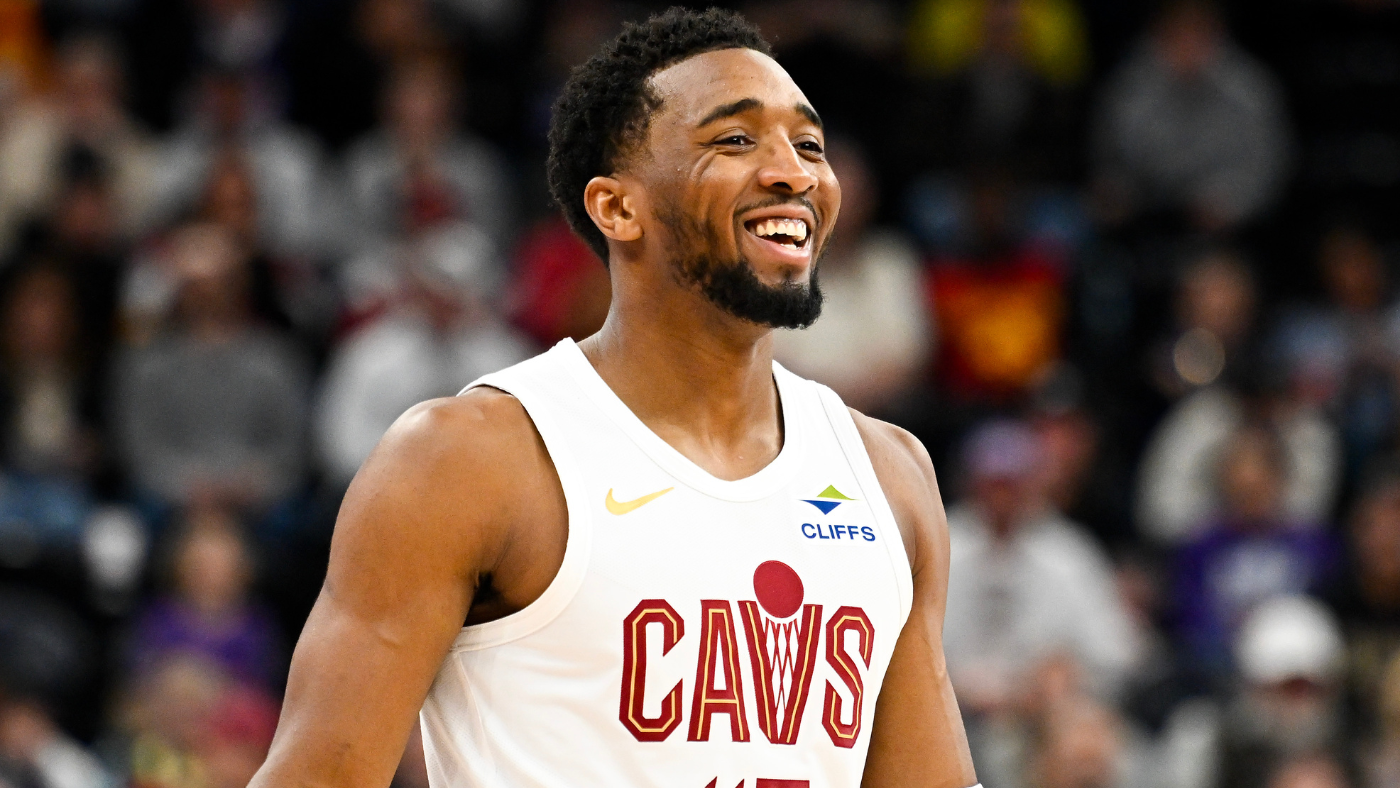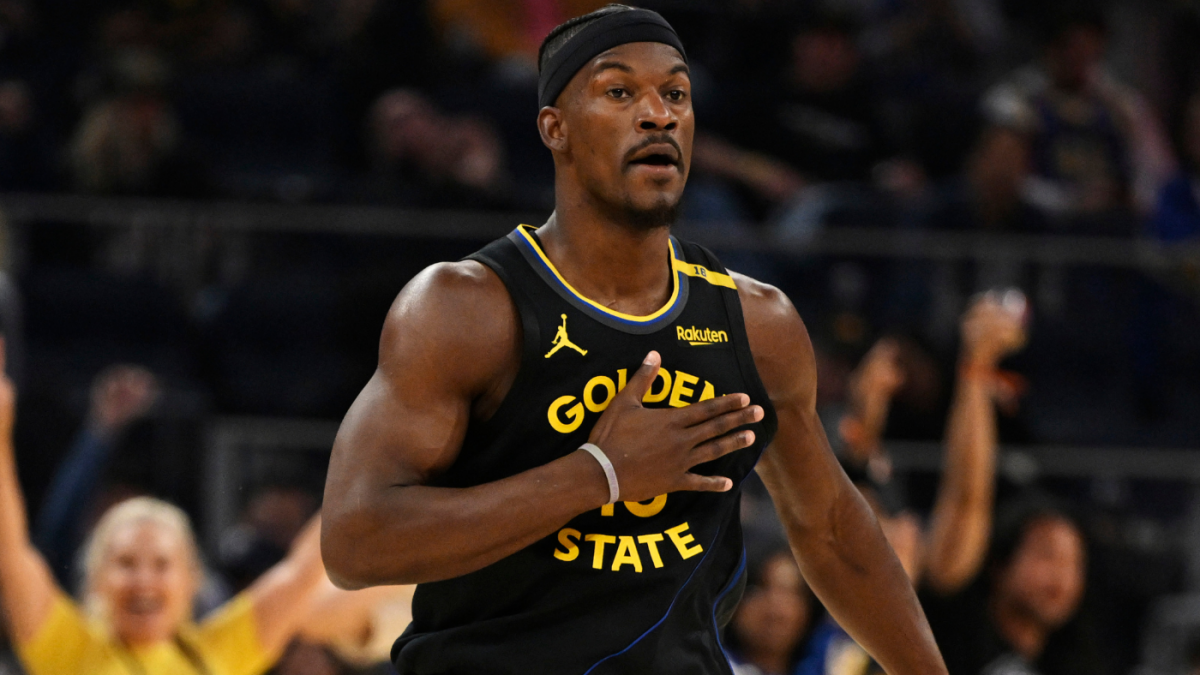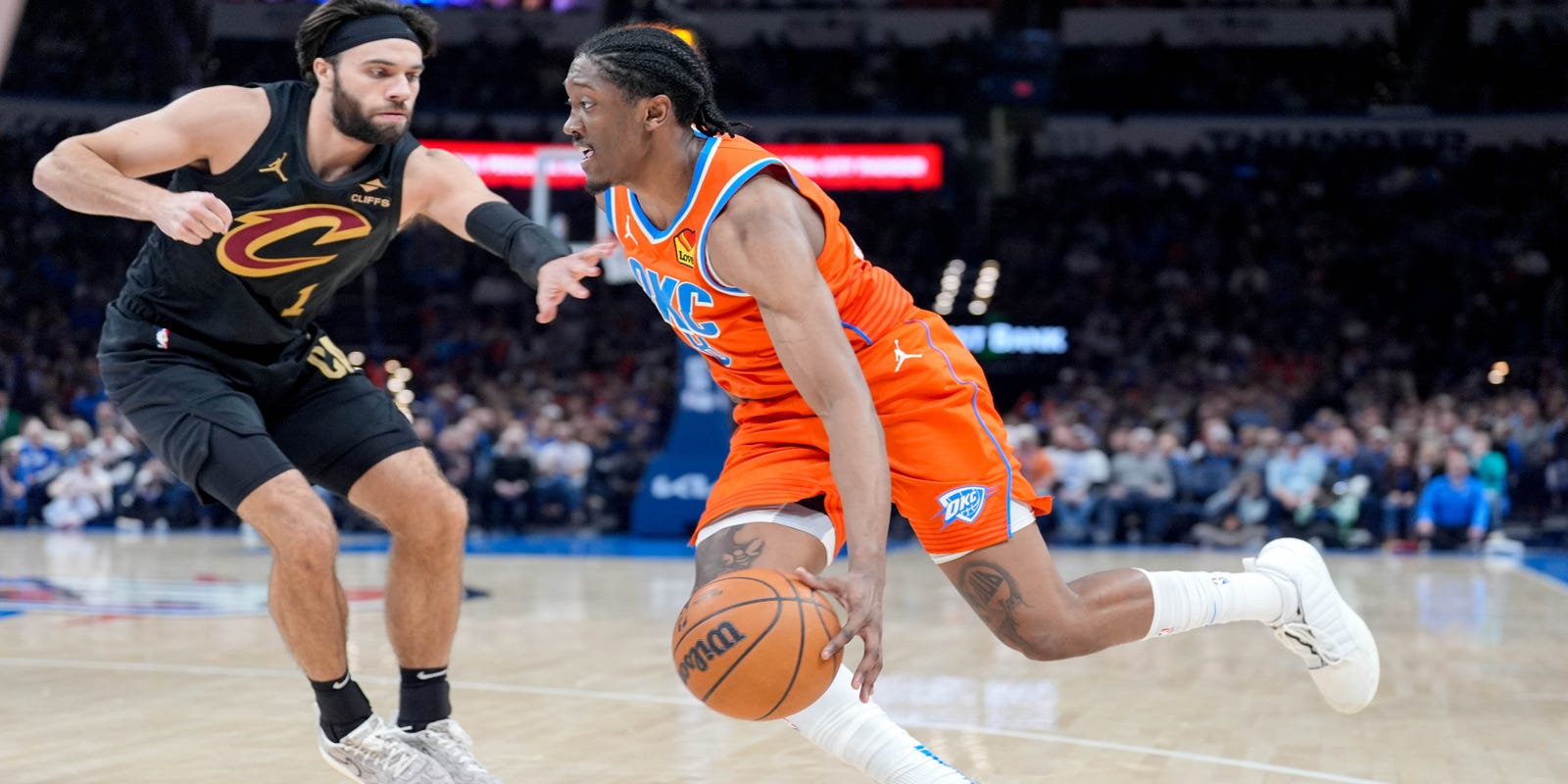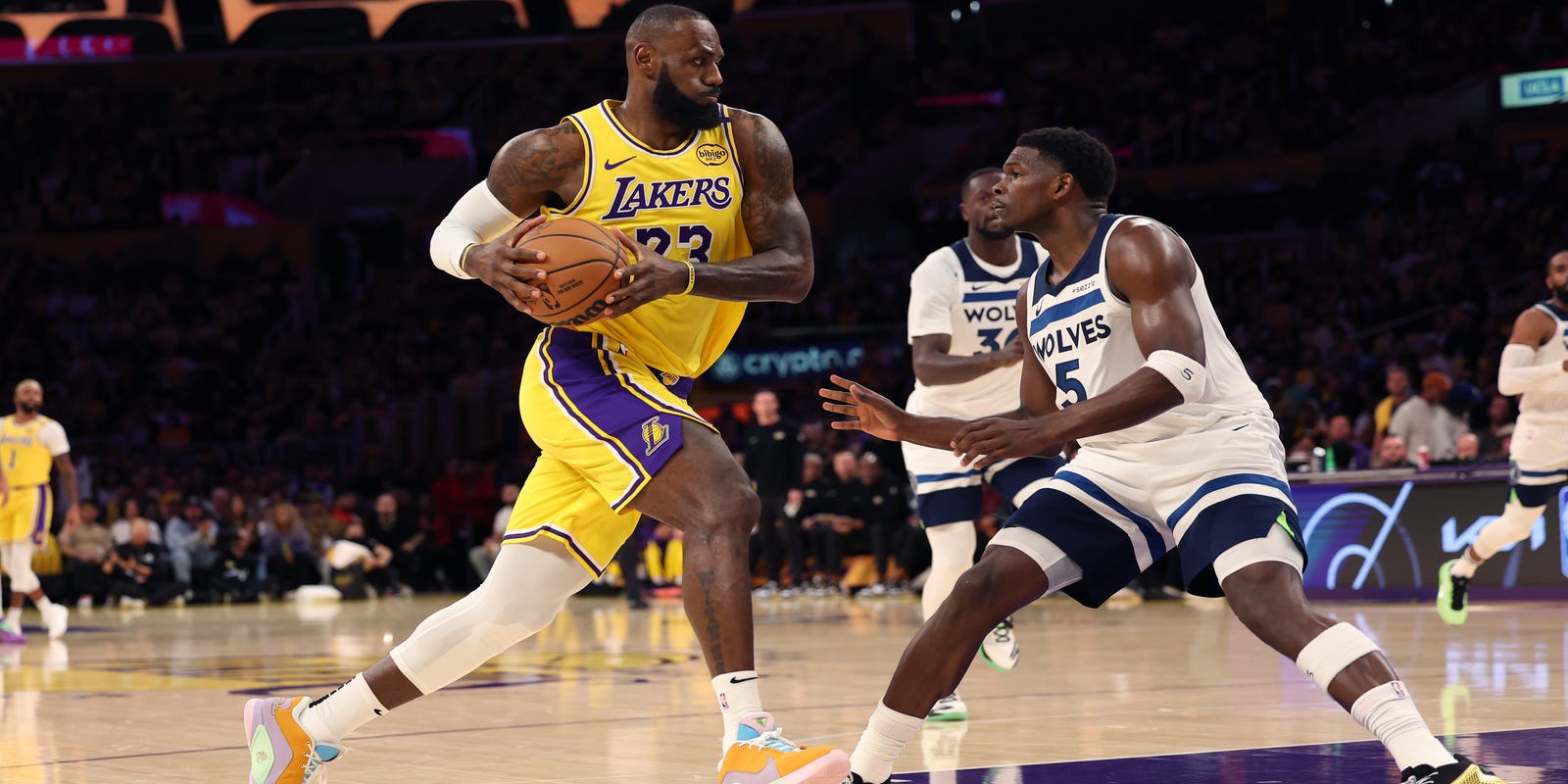
The 2024-25 NBBA regular season concluded on Sunday in fitting fashion, with a wild Clippers win over the Warriors in overtime to sort out the 5-7 seeds in about as tightly a packed Western Conference as we’ve seen in some time. But before we turn our full attention to the 2025 postseason, which begins Tuesday, let’s use this brief pause in the schedule to look back at the campaign we just watched play out for the last six months.
Below are full-season grades for all 15 Western Conference teams. This isn’t just based on where a team ended up, but rather, how the season played out relative to expectations — at least as far as we can reasonably approximate — while factoring in changing dynamics such as injuries, trades, and yes, a couple shocking coach firings.
The Portland Trail Blazers, for instance, are going to end up with a better season grade than, say, the Sacramento Kings or Dallas Mavericks, both of whom are in the postseason while Portland is in the lottery. Portland punched above its weight. Sacramento underperformed. The day the Mavericks traded Luka Dončić their season and long-term outlook became a punchline.

So, let’s get to it. Here are your 2024-25 NBA regular-season grades for every team in the West.
Dallas Mavericks: F
- Record: 39-43
- The basics: 18th in offense, 20th in defense, 19th in net rating (-1.3)
There’s no other way to put this. They traded Luka freaking Dončić, and fat-shamed him on the way out, for a now-32-year-old Anthony Davis who was always actually the far greater risk to get hurt … and then, what do you know, he got hurt in his first game with the Mavericks. Then Kyrie Irving tore his ACL. And now a team that was in the NBA Finals last season is scraping into the Play-In Tournament as the No. 10 seed with a pretty grim long-term outlook as well. Just an absolute bust all the way around for the Mavericks, and largely self inflicted at that. If there were a grade lower than F, that’s what they’d deserve. — Brad Botkin
Denver Nuggets: B
- Record: 50-32
- The basics: 4th in offense, 21st in defense, 9th in net rating (+3.8)
If this was a grade on ownership’s decision to dump its general manager and coach less than a week out from the postseason, it would be much lower. Even if you think those moves eventually needed to be made, there’s an offseason — particularly for coach Michael Malone, who delivered the only championship in franchise history from the ground up. Booth was a beneficiary of the good work of previous regimes, and simply put the finishing touches on the title. Plus you could argue getting a new GM in place sooner rather than later, if that is indeed your plan, is more important given the important draft evaluation period in which all teams are currently operating.
On the court, however, Denver has been good. You win 50 games and finish with a top-four seed in this Western Conference, you can’t have been anything less than good. Sure, the defense isn’t there (you don’t let good defensive players like Kentavious Caldwell-Pope and Bruce Brown go and stay a good defense) and the bench is dangerously dependent on the swings of Russell Westbrook to even be passable, but Nikola Jokić just had the best season of his career and Jamal Murray is getting back in Robin form. Denver remains a highly dangerous postseason team, even though David Adelman sliding one chair over has nothing to do with it. — Brad Botkin
Golden State Warriors: A
- Record: 48-34
- The basics: 16th in offense, 7th in defense, 10th in net rating (+3.2)
There’s only one record that matters to the Warriors, and that’s 23-7 since acquiring Jimmy Butler. They had the league’s best defensive rating over that stretch and the third-best net rating, establishing themselves as one of the NBA’s elite. The Butler effect was felt all over the roster, but particularly for Steph Curry, who averaged 27 points and six assists on 47/41/92 shooting splits after the trade as the gargantuan scoring burden was eased off of his shoulders. Also, what used to be disastrous non-Curry minutes were flipped into the positive thanks to Butler’s presence. Were it not for the trade, we’d have a much different story to tell. Instead the move turned the Warriors into one of the most dangerous teams in the NBA. — Colin Ward-Henninger
Houston Rockets: A
- Record: 52-30
- The basics: 12th in offense, 5th in defense, 7th in net rating (+4.6)
The Rockets are way ahead of schedule, but this isn’t a team that has necessarily overachieved. This is a seriously solid squad that is going to defend the life out of either the Warriors or Grizzlies in the first round of the playoffs, and they have more offensive firepower than the general perception indicates; they’re damn near a top-10 unit and have multiple players who can dominate on a given night. Certainly landing a consistent go-to scorer is the next step, but even right now, if you catch Houston on a night when Jalen Green is cooking, or support staff shooters like Jabari Smith Jr. and/or Dillon Brooks and/or Fred VanVleet. are making their 3s, or Alperen Sengun is dominating, you are in for a hell of a fight. Amen Thompson is a flat-out game changer. Ime Udoka should be getting serious Coach of the Year consideration. — Brad Botkin
Los Angeles Clippers: A+
- Record: 50-32
- The basics: 15th in offense, 3rd in defense, 5th in net rating (+4.9)
Relative to expectations, the Clippers had one of the best years in the entire NBA. When the season started, Paul George had left for the 76ers, James Harden was seemingly on the decline and Kawhi Leonard was sidelined for an undetermined period of time due to a mercurial knee injury. Fast forward to mid-April and the Clippers finished the regular season with an 18-3 record, boasting the league’s best offense and fourth-best defense over that stretch. Harden had a resurgent campaign, while Leonard slowly morphed back into the basketball assassin we’ve come to appreciate over the last decade-plus. Mix in career seasons from Ivica Zubac and Norman Powell, plus a full complement of well-suited role players, and the Clippers are a team nobody wants to face in the postseason. — Colin Ward-Henninger
Los Angeles Lakers: A
- Record: 50-32
- The basics: 11th in offense, 17th in defense, 14th in net rating (+1.2)
When we handed out midseason grades, the Lakers got a “C+”. Less than two weeks later, they traded for Luka Dončić. That alone is, obviously, worth an “A.” They exited last season with neither a long-term franchise player nor a viable head coach. Now they have one of the latter in JJ Redick and potentially two of the former with Dončić in place and Austin Reaves ascending into stardom.
Are there questions about this team as the 2025 postseason begins? Certainly. Redick made lemonade out his defensive lemons for months, but the Lakers finally started to regress on that end of the floor in March. They never found a big man after rescinding the Mark Williams trade. They won’t be favored in a playoff series against the Oklahoma City Thunder and there are a few other teams that could knock them out of the postseason. But considering where the Lakers were when this season started and where they are now, there’s no other plausible grade than an “A.” They turned a slow and aimless decline into one of the brightest futures in the NBA. Anything else that happens this spring is gravy. — Sam Quinn
Memphis Grizzlies: C+
- Record: 48-34
- The basics: 6th in offense, 11th in defense, 6th in net rating (+4.7)
The impressive numbers above tell the story of a resurgent Grizzlies team ready to once again contend for a title. The reality, as we know, is much less rosy. Taylor Jenkins was fired amid a mediocre stretch following the trade deadline, and Memphis went just 14-25 against teams .500 and above for the season. Ja Morant saw dips in production, efficiency and availability from his last full season, while the Grizzlies’ defense fell to 18th after the All-Star break. They fell from the No. 2 seed to the Play-In Tournament in less than two months, and now the future of the team — and its star — are in question. — Colin Ward-Henninger
Minnesota Timberwolves: B-
- Record: 49-33
- The basics: 8th in offense, 6th in defense, 4th in net rating (+5.0)
It took awhile, but the Timberwolves are finally starting to dig themselves out of the hole they dug the moment they traded Karl-Anthony Towns. When they started 32-29, they appeared destiny for a miserable offseason of second-guessing and further cost-cutting. But Julius Randle is finally coming into his own in Minnesota, hitting his 3s and at least surviving on defense as the Timberwolves have slowly climbed up the standings. Fellow New York import Donte DiVincenzo is making his shots now as well, and with Anthony Edwards now firmly among the very best guards in basketball, a bit of hope is starting to return to the Twin Cities.
Still, the Timberwolves very nearly made the Finals a year ago. They won seven fewer games this season based on a self-inflicted wound, so they can’t fairly be given anything above a “B-” at least for now. If Minnesota surprises in the playoffs, this grade can be reevaluated. For now, they turned a team that was probably capable of contending for a championship into one that probably can’t. They’ve made the best of a bad situation, but they just haven’t lived up to last season’s standard. — Sam Quinn
New Orleans Pelicans: D+
- Record: 21-61
- The basics: 25th in offense, 29th in defense, 29th in net rating (-9.4)
You don’t have to look hard for negatives here. Everybody got hurt. Many of the players who did weren’t great when they played. Herb Jones stopped making 3s. Dejounte Murray stopped making much of anything. The Pelicans only managed to get four five-man lineups up to 100 possessions of playing time this season. Not one of them could even muster a league-average defense. The whole thing was a mess.
But a few individual parts saved the Pelicans from an “F.” Trey Murphy is going to compete for an All-Star slot next season. You won’t find many better combinations of athleticism and shooting in basketball, and the extra usage he got on this injury-riddled roster taught him quite a bit that will matter next season. Yves Missi is a long-term starting center. Brandon Boston is a useful long-term wing. And, once again, the siren song of Zion Williamson is ringing in the ears of anyone who watched the Pelicans in February or March, when the former No. 1 pick played some of the best basketball of his career. This season was a disaster, but it wasn’t a waste. Even if we say this every spring, the Pelicans have a chance to be dangerous if they can just stay healthy next season. — Sam Quinn
Oklahoma City Thunder: A+
- Record: 68-14
- The basics: 3rd in offense, 1st in defense, 1st in net rating (+12.7)
The Thunder, just had the second-best net rating in NBA history. They made it all the way to April 4 before they were mathematically eliminated from the possibility of winning 70 games. If you only counted their home wins, they would have contended for an Eastern Conference play-in berth. If the Thunder aren’t getting an “A+” I’m not sure who could.
While there are questions about how their young roster will adjust to the postseason, there just isn’t a regular-season nit to pick here. They finished in the top three in both offense and defense. They’ve hovered around league-average in rebounding rate after finishing No. 28 last season. No team has forced more turnovers. Only Boston has committed fewer. They did all of this despite far from perfect health. Chet Holmgren, arguably their second-best player, missed more than half of the season, and he wasn’t the only frequently absent member of the Thunder. This has been about as close to a perfect regular season as Oklahoma City could have asked for. It’s a no-brainer “A+.” — Sam Quinn
Phoenix Suns: F
- Record: 36-46
- The basics: 13th in offense, 27th in defense, 23rd in net rating (-3.0)
The Suns — who fired Mike Budenholzer on Monday and will hire their fourth coach in four seasons in the coming weeks — are lucky to avoid an “F-” after the debacle of a season they just endured. Many of the bad grades you’ll see here boiled down to circumstances. A team got hurt. A team made a bad trade. A team changed coaches during the season. None of that really applies to Phoenix. This is the team the Suns wanted. It just wasn’t very good.
The Suns finished the season with a bottom-five defense. That was, at least, a somewhat predictable outcome when they failed to meaningfully address the center position last offseason and bet their perimeter defense on a rookie in Ryan Dunn. That they have now failed to finish higher than 10th in offense in consecutive seasons with three max-salary scorers on their roster is one of the great roster-building failures in recent memory. The Suns gathered a lot of redundant talent and were shocked to learn that there is more to the game of basketball than the ability to make tough shots. Hopefully they’ll learn their lesson when they inevitably retool the roster this summer. — Sam Quinn
Portland Trail Blazers: B
- Record: 36-46
- The basics: 22nd in offense, 16th in defense, 21st in net rating (-2.7)
The Blazers blew past their preseason win projections, which were somewhere in the neighborhood of 21. They had an outside shot at making the play-in fairly late in the season on the strength of a 25-25 run after Jan. 1 with a top-10 defense. That stretch, if nothing else, gives the Blazers a little more time to keep taking steps with their young core of Deni Avdija, Donovan Clingan, Shaedon Sharpe, Toumani Camara and Scoot Henderson before making any major rulings. Henderson probably isn’t going to be the star he was supposed to be, but he was quietly pretty good over the season’s final three-plus months at over 13 PPG and five assists on 37% 3-point shooting. The single offensive foundational piece the Blazers still need probably isn’t here, but this is a sum-of-its-parts core that looks promising at least around the edges. Chauncey Billups has quietly done a really good job of establishing a competitive, defensive culture that should be anchored by Clingan for years to come. — Brad Botkin
Sacramento Kings: D
- Record: 40-42
- The basics: 7th in offense, 22nd in defense, 15th in net rating (+0.6)
Sacramento is in the play-in which on its face isn’t a sunk season in a Western Conference like this one, but the Kings finished under .500 and even if they manage to win two do-or-die games they would only be delaying what would be a violent first-round death against the top-seeded Thunder. The Kings lost De’Aaron Fox and might lose Domantas Sabonis if he decides he no longer sees a long-term plan that, really, nobody else can see, either. As it stands, the Kings have basically turned into Chicago West with the DeMar DeRozan-Zach LaVine duo leading them into the teeth of low-end mediocrity. — Brad Botkin
San Antonio Spurs: B-
- Record: 34-48
- The basics: 19th in offense, 25th in defense, 22nd in net rating (-2.8)
We’re really only grading the Spurs based on the games played before Victor Wembanyama’s season-ending injury, and at that point they were 23-29 with the league’s 19th-ranked net rating — so, still not great. Wembanyama, who was likely on his way to his first Defensive Player of the Year award before his injury, led the Spurs to the equivalent of the NBA’s third-best defense when he was on the floor, so that’s certainly something to carry into next year. They received a surprising 82-game season from Chris Paul, and Stephon Castle’s late-season burst probably won him Rookie of the Year. Spurs fans would have liked to see a stronger push toward the Play-In Tournament, but they’ll be patient as they await Wembanyama’s return. — Colin Ward-Henninger
Utah Jazz: D
- Record: 17-65
- The basics: 24th in offense, 30th in defense, 28th in net rating (-9.2)
There’s a way to purposely lose games without reaching the point of embarrassment, and the Jazz did a poor job walking that line this season. Utah went 4-24 after the All-Star break while losing by an average margin of nearly 14 points. Most disappointing was the regression of franchise forward Lauri Markkanen, who went from 23 points per game last season to 19 this season amid sporadic availability, with significant drops in both field goal and 3-point percentage. It’s fine to tank, but you don’t want it to come to the detriment of your best player. Overall, it was a season to forget in Utah, but it will all be worth it if they land a future star in June’s draft. — Colin Ward-Henninger


